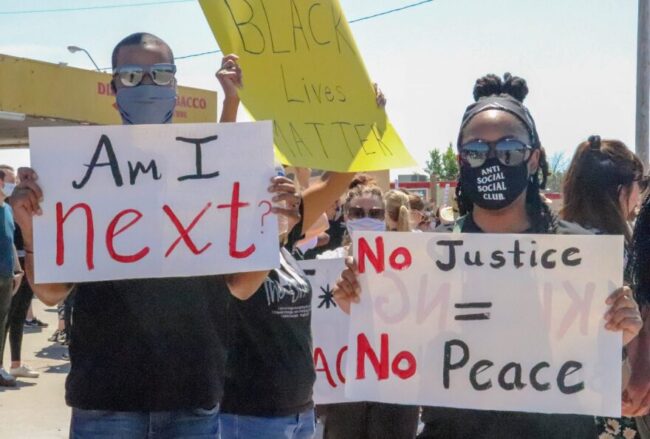Oklahoma City considers reinstating its Human Rights Commission

Oklahoma City Council is considering reinstating its Human Rights Commission to help protect and enforce Oklahoma’s anti-discrimination laws. The proposal to restart the commission comes following civil rights protests concerning policing of marginalized communities.
The Human Rights Commission will address alleged discrimination toward Oklahomans based on their race, color, religion, creed, sex, gender, national origin, age, familial status, genetic information, or disability-related to employment, housing and public accommodations.
The proposed ordinance allows each of the eight city council members to refer a candidate to the mayor to represent their ward. Out of those chosen for the commission, the mayor will elect one candidate to serve as the chair. One candidate must be a lawyer. The city manager will appoint a compliance officer for the commission. The terms for each candidate will be three years following the initial service.
Some of the Human Rights Commission’s duties include promoting human rights within the community, including public and private agencies, and working with law enforcement by referring violations or violations of anti-discrimination laws. Mediate complaints alleging anti-discrimination law violations, recommend studies or surveys to promote human rights, and participate in at least one educational event annually supporting human rights.
Residents can review the proposed ordinance and weigh in by completing an online comment form on the OKC.gov website.
Oklahoma City has reinstated the Human Rights Commission once before in the 1980s in response to severe racial crimes across the city, including an erected burning cross on the front lawn of a northeastern OKC church and local Jewish temples vandalized with graffiti. In 1996, the OKC City Council abolished the commission after the organization defended sexual orientation by standing with the LGBT+ community.
Mayor David Holt created the current Human Rights Commission task force in 2020. Holt named co-chairs, including Ward 7 Councilwoman Nikki Nice, Maurianna Adams and Dr. Andrea Benjamin and led the group as it drafted a proposal for the city council..
History of discrimination
From the recent controversial LGBT+ and women’s rights laws to the 1920s Tulsa Race Riots, Oklahoma has a long history of racism, phobia and discrimination.
According to a report from OKHistory.org, social conditions in the early 1920s made Oklahoma a fertile field for a Ku Klux Klan membership drive after establishing a strong Texas base first.
The state’s population shifted from almost entirely rural in 1900 to 30 percent urban in 1920. Crimes and other changes like bootlegging, prostitution and gambling upset many rural residents. Politically conservative Oklahomans worried that the growing communist movement would gain a foothold in their state. Oklahoma’s diverse population also included many white residents, especially in southeastern Oklahoma, who had ties to the Confederacy.
With white culture and Protestant Christianity on the rise in Oklahoma, the perfect environment aligned with the Klan’s beliefs and actions, thus creating the ideal space for Oklahoma’s Klan.
Community needs
According to a report from the UCLA School of Law’s Williams Institute, Oklahoma counts a little over 100,000 LGBT+ residents, with 74,000 over the age of 16 actively participating in the workforce.
The report details “aggregated data from two large public opinion polls conducted between 2011 and 2013 indicated that 78% of Oklahoma residents thought that LGBT+ people experience discrimination in the state.”
The 2015 U.S. Transgender Survey found that 26% of transgender respondents from Oklahoma who held or applied for a job in the prior year reported being fired, denied a promotion, or not hired because of their gender identity or expression. 15% of Oklahoma transgender respondents reported experiencing some form of housing discrimination.
Today, Governor Kevin Stitt and his administration have made it their mission to target LGBT+ folx, especially transgender youth, with recent laws against transgender athletics, healthcare, and bathroom policies.
The Oklahoma City Council will meet to consider the Human Rights Commission adoption expected on July 19.

